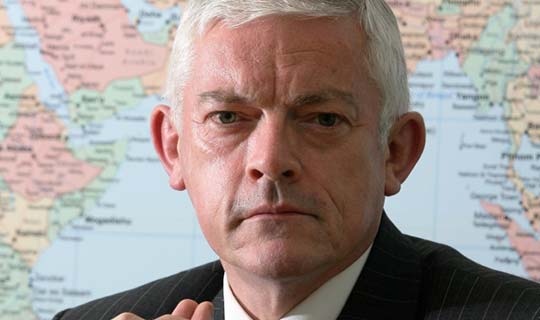Handicapping Asia’s risks in 2018
In January, Hong Kong-based SVA (Steve Vickers and Associates) issues its annual Asia Risk Assessment which handicaps the comparative political and economic risks for each nation or territory in the region.
There is a tendency for most business travelers to pick up a regional guidebook before embarking on a trip to Asia, a guidebook might provide some help getting a taxi. For any company or individual that already has money in the game or plans on investing in Asia, SVA’s annual report is mandatory reading.
Steve Vickers, the founder and CEO of SVA knows Asia like few others. Vickers spent eighteen years in the Royal Hong Kong Police Force and commanded the Force’s Criminal Intelligence Bureau before establishing SVA.
Like the previous annuals, the 2018 risk assessment has some interesting takes on the risks in the region…starting with Hong Kong.

The SVA forecasts Hong Kong’s “GDP may rise by 3.7% in 2018, up from estimates of 3%...” adding, “The city should benefit from Chinese companies listing in Hong Kong, and from the One Belt, One Road initiative.”
The section on Taiwan is also interesting as President Tsai lng-wen plots a new direction for her country. SVA finds the “political challenge least troubling” correctly noting that the “Democratic Progressive Party (“DPP”) have yet to depart far from the policies of the preceding Kuomintang (“KMT”) government.” According to the SVA report, “Tsai’s main political test will be to maintain a “softly, softly” approach towards China. In that context, Tsai appointed William Lai, the outspoken former Mayor of Tainan, as Premier - in an effort to bolster pro-independence support ahead of local polls, and so pre-empt critics.”
China is the pivotal nation in SVA’s regional risk assessment. SVA notes, “A taut political climate and economic nationalism will continue in the People’s Republic of China (“PRC”) in 2018. These risks are predictable, though; more worrying is the international environment.”
The “international environment,” starts with the Korean peninsula: “The Korean peninsula presents the prospect of conflict between the US and North Korea, which could draw in China. Beijing is working hard to lessen tensions, but much rests on people over whom China has little sway. Worse, regional tensions may distract from the One Belt, One Road initiative, notwithstanding a decline in US regional influence of late, so forestalling a prospective boon.”
Although there are some issues, such as the Korean peninsula, that are of global scale and could undermine global prosperity, for the most part SVA’s 2018 report is relatively optimistic. For more information on the report go to www.stevevickersassociates.com.
© Copyright 1999–2024 American Journal of Transportation. All Rights Reserved

